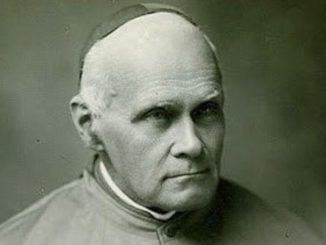
The last of the Luciferian ploys to tempt Our Lord is, in my opinion, the condensation of all the considerations we have discussed. As the Gospel texts tell us, Satan shows Christ all the kingdoms of the world and offers them to Him on condition that He worships him.
On many occasions, a somewhat superficial reading of the matter has been made, claiming some sort of supreme power without supernatural involvement. The reality is different. In this temptation, Lucifer anticipates the prophecies of the final moments of human history. World power as the vicar of Satan is, without a doubt, the great and final satanic offensive against the Kingdom of Christ: the reign of the Antichrist. The so-called abomination of desolation, that is, the substitution of the worship of God by the worship of the creature – Lucifer – does not work directly, but vicariously. The devil seeks to establish his reign through a vicar. A vicar who will embody in his person the essentially Luciferian traits: the non serviam, articulated in the transgression of order and, therefore, of the ordinances qualified by it; he will be, in other words, the Lawless One or Ánomos.
This satanic kingdom, as we have pointed out, does not have a direct worship of Lucifer, but rather a mediated worship that places a creature in his place and under his command. Now, it is clear that the temporal era that makes this sinister reign possible will be none other than that marked by apostasy, by embodied heresy: theoretical modernity materialized chronologically through the revolutionary era.
The fall of the Christian monarchies, through the ruptures pointed out by Elías de Tejada, implied the collapse of a powerful dike of containment against the subversion of the principle of authority. The primacy of Protestant subjectivity, the divorce from ethics of Machiavellian politics, the deification of power implied by sovereignty, the subordination of order to the will codified in contractualism, and the institutionalization of a new “order” by the so-called Peace of Westphalia (1648) converge in the worship of man, the annulment of the old Christian order, and the preparation of a new state of affairs that allows the existence of a world tyrant at the service of the abomination of desolation.
The temptations to which we have previously referred, such as “incarnationism” or “eschatologism,” coincide in the crushing of resistance, integrating themselves into the sinister system under construction. Thus, the creature, in place of God, subordinates religion to divinized politics, as suggested by “incarnationism,” but also presents itself as the definitive liberation, to the tune of “eschatologism”.
These considerations are not intended to determine the day or the hour, a reality that the Magisterium – and common sense – discourages. On the other hand, neither should the observation of the signs of the times lead us to an obsessive fatality that would distract us from the duties of our state in life, that would divert us to playing theologians or prophets, forgetting our state as militant soldiers of the common good, both natural and supernatural. If I have made these observations, it is to show that the power of darkness welcomes all the temptations that there have been and will be against the restoration of all things in Christ. The restoration of the Catholic City, which, as St. Pius X reminds us, is not in the clouds or to be invented, refutes the enemies of Christ of yesterday and today, because it suppresses the collusion of Christian politics with ideologies and defines our struggle, which has not ceased, at this moment, urging us to reject the possibilitisms and entrisms born of false prudence or the prudence of the flesh. The restoration that is demanded of us passes through the Catholic City that has existed and continues to exist, that is, the Kingdom of Christ encoded in the principles of natural and Christian politics: the divine origin of power, the political community as an organic and ordered corpus mysticum, and personal and sacral power; or, in short, “God, Fatherland and King.”
Miguel Quesada Círculo Hispalense
Translation by the Gremio San Jerónimo




Deje el primer comentario